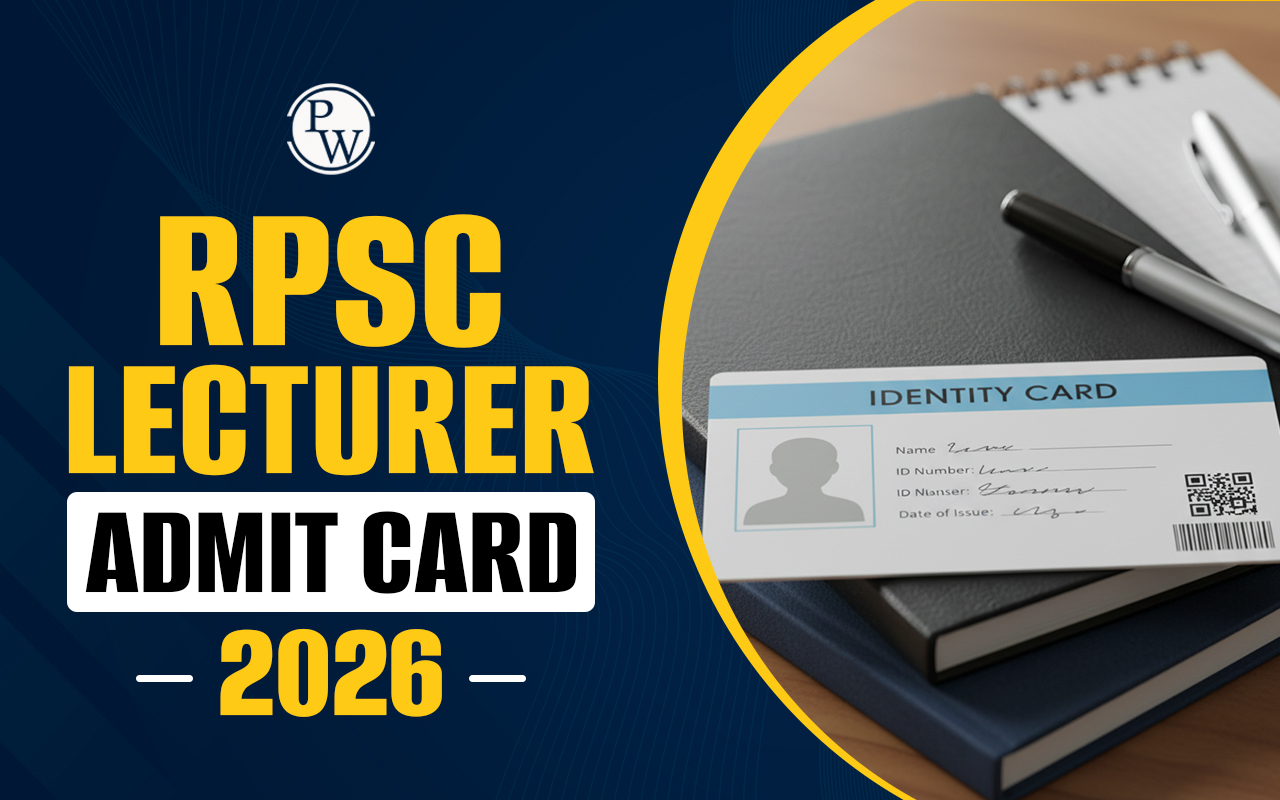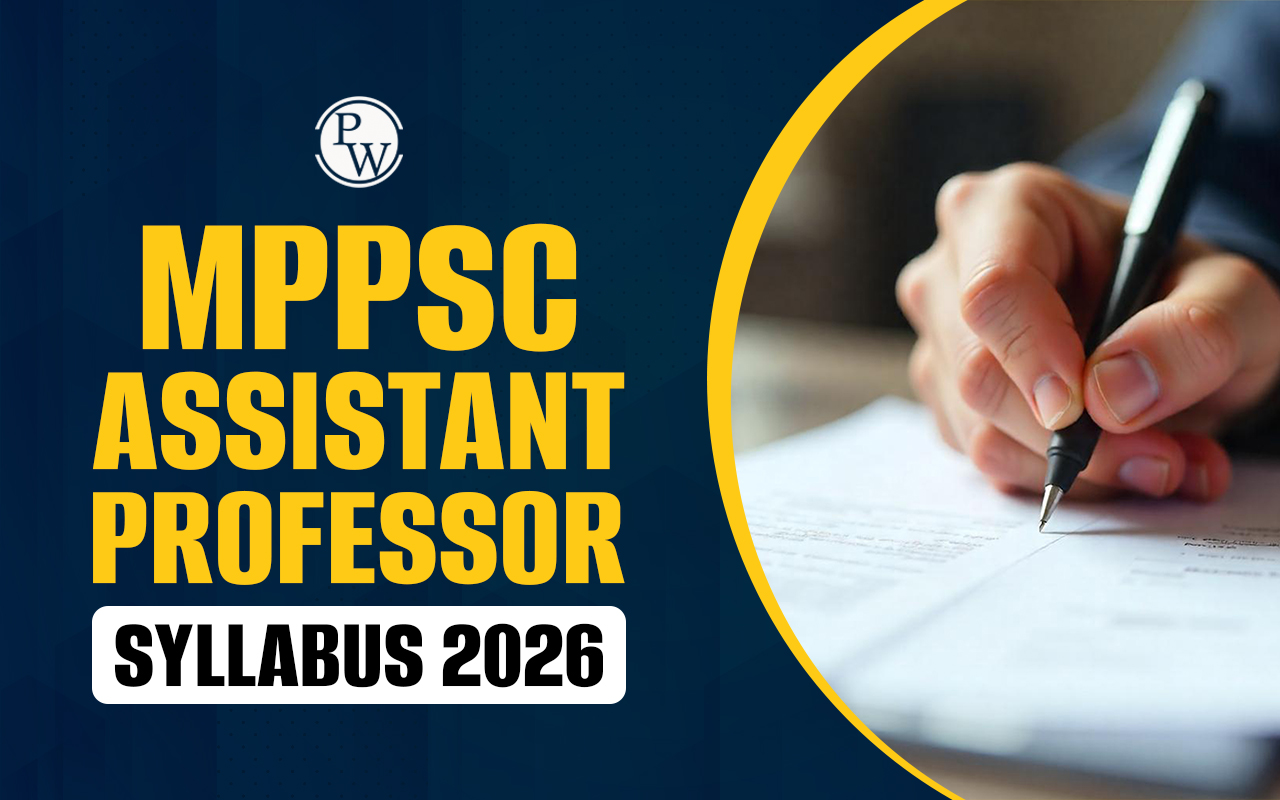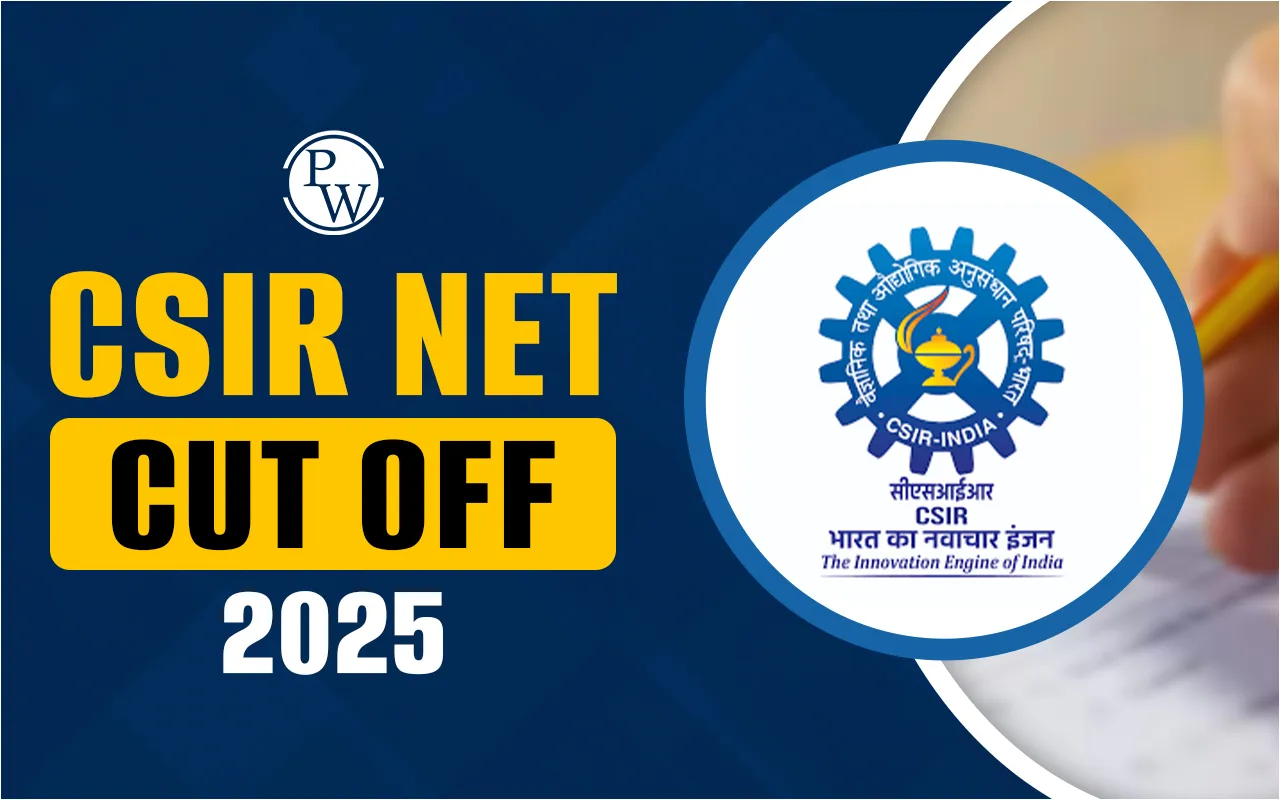
DBT JRF Syllabus 2024: The DBT JRF 2024 Exam, conducted by the Department of Biotechnology, is also known as the Biotechnology Eligibility Test (BET). The exam syllabus includes two main parts: General Biotechnology and General Aptitude in Part A. Recently, the Department of Biotechnology updated the BET syllabus, which you can find easily on their official website.
The DBT BET JRF Syllabus 2024 is divided into sections on general and specialized biotechnology and general aptitude. To prepare effectively, it's important to review the life sciences syllabus thoroughly. Understanding the DBT JRF Syllabus 2024 is key to creating a good study plan and doing well on the exam. The exam results determine your eligibility for a junior research fellowship, so make sure to follow the latest syllabus PDF for both parts to prepare thoroughly.DBT JRF Syllabus 2024
The DBT JRF exam, known as the Biotechnology Eligibility Test (BET), is conducted by the Department of Biotechnology. The syllabus has two main parts: General Biotechnology and General Aptitude in Part A. Recently updated and available on the official website, the syllabus is divided into general and specialized branches of biotechnology, along with general aptitude. To prepare well, it's important to review the life sciences topics thoroughly. The exam results determine eligibility for a junior research fellowship.DBT JRF Syllabus 2024 Subject Wise
The DBT JRF Syllabus 2024 is designed for the Biotechnology Eligibility Test (BET), which is the recruitment exam for the DBT Junior Research Fellowship. The question paper has two parts. Part A covers General Aptitude and General Biotechnology, while Part B focuses on Specialized Branches in Biotechnology. Below is the detailed syllabus for both parts of the BET examination.Part A Aptitude and General Biotechnology
The DBT BET JRF Syllabus covers both General Aptitude and General Biotechnology. The General Aptitude section tests reasoning, numerical skills, and communication abilities. It includes logical reasoning, data interpretation, quantitative aptitude, verbal and non-verbal reasoning, and basic English comprehension. The General Biotechnology section includes topics like biomolecular structure and function, methods in biotechnology, genomics and proteomics, genetics, cellular processes, and recombinant DNA technology. Understanding these topics is essential for thorough exam preparation.| DBT JRF Syllabus 2024 Part A | |
| Section | Topics |
| General Aptitude | - General science, chemistry, mathematics |
| - Comprehension based: Reading a paragraph and answering related questions | |
| - Non-verbal reasoning: Finding the odd one out in a series of abstract pictures | |
| - Quantitative type: Understanding large numbers and performing simple calculations | |
| General Biotechnology | - Biomolecular structure and function |
| - Methods in Biotechnology | |
| - Genomics and Proteomics | |
| - Genetics, Phylogeny & Evolution | |
| - Cellular processes | |
| - Organization of structure and functions of prokaryotic and eukaryotic cells | |
| - Recombinant DNA Technology | |
| - IPR, Biosafety & Bioethics | |
Part B Specialized Branches in Biotechnology
After completing Part A, the DBT BET Exam Part B focuses on specialized areas of Biotechnology. This section covers fields like Animal Biotechnology, Bioinformatics and Computational Biology, and Environmental Biotechnology. Candidates must answer 50 out of 150 questions from their chosen specialization. This ensures a thorough test of their knowledge in specific areas of expertise.| DBT JRF Syllabus 2024 Part B | |
| Specialized Branch | Topics |
| Agricultural Biotechnology | - Plant Biology, Physiology, Molecular Biology, and Seed Technology |
| - Abiotic and Biotic Stress Biology | |
| - Tissue Culture, Transgenic Technologies, and Biotechnology | |
| - Molecular Breeding and Genomics | |
| - Biodiversity | |
| Animal Biotechnology | - Animal Physiology and Biochemistry |
| - Pathology | |
| - Animal Parasitology | |
| - Molecular Diagnostics | |
| - Animal Genetics | |
| - Histology and Embryology | |
| - Animal Virology | |
| - Research Methodologies | |
| - Molecular Medicine and Surgery | |
| - Immunology | |
| Bioinformatics & Computational Biology | - Major Bioinformatics Resources |
| - Proteins | |
| - Sequence Analysis, Basic Concepts | |
| - Database Searches | |
| - DNA & RNA Secondary and Tertiary Structures, t-RNA Tertiary Structure | |
| M. Tech. Biotechnology, Biochemical Engineering and Industrial Biotechnology | - Introductory Mathematics |
| - Bioprocess Engineering and Technology | |
| - Thermodynamics in Biological Systems | |
| - Downstream Processing in Biotechnology | |
| - Engineering Principles | |
| - Bioprocess Plant Design | |
| Environmental Biotechnology | - Basic Ecological Concepts and Principles |
| - Chemistry of Organic and Inorganic Chemicals Polluting Environment (Air, Water, and Soil) | |
| - Environmental Pollution | |
| - Water Pollution: Sources, Measurement, and Management | |
| - Wastewater Treatment Systems | |
| - Treatment of Industrial Effluents (Dairy, Distillery, Sugar, and Antibiotic Industries) | |
| - Management of Municipal, Biomedical, and Agricultural Solid Waste | |
| - Environmental Pollution Control | |
| - Environment-Friendly Technologies | |
| - Pollution Monitoring and Global Environmental Problems | |
| Marine Biotechnology | - Important Marine Organisms and Their Behavior |
| - Marine Resources Assessment | |
| - Population Study and Marine Environment Protection | |
| - Oceanography | |
| - Types of Marine Microbes and Their Biology | |
| - Microbial Assessment | |
| - Role of Microbes in Marine Environment | |
| - Microbial Metabolites | |
| - Microbial Interaction | |
| - Culture Systems and Hatchery Techniques | |
| - Introduction to Marine Pharmacology | |
| - Manipulation and Microbial Techniques | |
| - Disease Diagnosis | |
| - Marine Organisms and Environment Interaction | |
| - Pollution & Biomaterial Interaction | |
| - Fouling and Corrosion | |
| - Wastewater Bio-treatment | |
| Medical Biotechnology | - Vaccinology & Immunotechnology |
| - CMI and Imaging Technique | |
| - Genetics in Medical Practice | |
| - Genetics of Neurogenetic Disorders and Eye Disorders | |
| - Complex Polygenic Syndromes | |
| - Components of Genetic Counseling | |
| - Infections of the Gastrointestinal Tract, Respiratory System, and Nervous System | |
| - Pyrexial Illness | |
| - Sexually Transmitted Diseases and Congenital Infections | |
| - Host-Pathogen Interactions in Disease | |
| - DNA, Proteomics, and Antibody-Based Diagnosis | |
| - Gene Therapy, Cellular Therapy, Recombinant Therapy, and Immunotherapy | |
| - Gene Silencing Technology | |
| Molecular and Human Genetics | - Cell Biology and Cytogenetics |
| - Principles of Genetics | |
| - Common Genetic Disorders | |
| - Human Genome | |
| Neuroscience | - Neurons, Glial Cells |
| - Neurophysiology and Behavior | |
| - Major Events in Early Embryonic Development | |
| - Patterning, Polarity, and Regionalization of the Nervous System | |
| - Neuronal Death During Development | |
| - Neurotrophic Factors | |
| - Electrical Properties of Excitable Membranes, Neurons, Quantitative Models of Simulations | |
| - Synaptic Transmission and Cellular Signaling | |
| - Sensation and Perception | |
| - Fundamentals of Motor System | |
| - Chemical Control of Brain and Behavior | |
| - Neural Control of Breathing | |
| - Sleep and Dreaming | |
| - Cognitive Development and Aging | |
| - Clinical Neurochemistry and Neuropathology | |
| Pharmaceutical Biotechnology | - Drug Metabolism |
| - Pharmacological Screening and Assays | |
| - Enzymes and Microbial Technology | |
| - Biochemical Engineering | |
| - Downstream Processing | |
| - Industrial Application | |
Preparation Tips for DBT JRF Syllabus 2024
To excel in the DBT JRF exam, it's essential to follow a structured approach to preparation. Here are practical tips to help you:- Understand the Syllabus: Begin by thoroughly understanding the entire DBT JRF syllabus. Break it down into manageable sections and topics to create a clear study plan.
- Refer to Official Sources: Use reliable sources such as the DBT website to access accurate and updated syllabus information.
- Organize Study Material: Gather relevant study materials including textbooks, reference books, online resources, and previous year's question papers.
- Create a Study Schedule: Design a balanced study schedule that allocates sufficient time to each section of the syllabus. Stick to this schedule consistently to cover all topics comprehensively.
- Focus on Basics: Build a strong foundation by grasping fundamental concepts in each subject area. This foundational knowledge will help you tackle more complex topics effectively.
- Practice Regularly: Regular practice is crucial for mastering the syllabus. Solve practice questions and mock tests to improve your problem-solving skills and familiarize yourself with the exam format.
- Revise Regularly: Allocate time for regular revision of covered topics. Repetition reinforces understanding and retention of key concepts.
- Use Mnemonics and Visual Aids: Mnemonics and visual aids can aid in remembering intricate details and complex concepts more effectively.
- Stay Updated: Keep abreast of recent advancements in biotechnology through scientific journals, articles, and news updates.
- Join Study Groups: Collaborate with peers or join study groups to discuss concepts, exchange insights, and clarify doubts.
- Practice Time Management: Enhance your time management skills by practicing solving questions within specified time limits. This prepares you for the exam's time constraints.
- Maintain a Healthy Lifestyle: Prioritize a balanced lifestyle with adequate sleep, a nutritious diet, and regular exercise. A healthy body supports effective studying.
- Take Breaks: Incorporate short breaks during study sessions to prevent burnout and maintain focus and productivity.
- Solve Previous Year Papers: Practicing previous years' question papers helps familiarize you with the exam pattern and types of questions likely to be asked.
- Seek Guidance: Don't hesitate to seek guidance from teachers, mentors, or subject experts if you encounter challenging topics.
- Stay Positive: Developing a positive attitude and believing in yourself boosts confidence and improves how well you perform. Positive thinking can make a real difference in your results.
- Mock Tests: Take full-length mock tests to simulate the exam environment, gauge your readiness, and improve speed and accuracy.
- Monitor Your Progress: Regularly assess your progress by identifying strengths and weaknesses. Adjust your study plan accordingly to focus on areas needing improvement.
- Stay Calm During the Exam: On exam day, stay calm and composed. Read questions carefully before attempting them to ensure accurate answers.
- Believe in Yourself: Believe in your preparation and do your best during the exam. Having self-confidence is key to succeeding.
DBT JRF Syllabus 2024 FAQs
What is DBT JRF Syllabus 2024?
DBT JRF Syllabus 2024 refers to the topics covered in the Biotechnology Eligibility Test (BET) conducted by the Department of Biotechnology. It includes General Biotechnology, General Aptitude, and specialized branches in biotechnology.
How is the DBT JRF Syllabus divided?
The DBT JRF Syllabus 2024 is divided into two parts. Part A covers General Aptitude and General Biotechnology, while Part B focuses on specialized branches such as Agricultural Biotechnology, Animal Biotechnology, Bioinformatics, and more.
Where can I find the updated DBT JRF Syllabus 2024?
You can easily find the updated DBT JRF Syllabus 2024 on the official website of the Department of Biotechnology.
Why is it important to understand the DBT JRF Syllabus 2024?
Understanding the DBT JRF Syllabus 2024 is crucial for creating a structured study plan and preparing effectively for the exam. It helps in covering all necessary topics and improving chances of qualifying for a junior research fellowship.
What are some tips for preparing for the DBT JRF exam?
Effective preparation tips include understanding the syllabus thoroughly, practicing regularly, revising topics, using mnemonics for better retention, and staying updated with biotechnology advancements. It's also beneficial to join study groups and solve previous year's question papers.
Talk to a counsellorHave doubts? Our support team will be happy to assist you!

Check out these Related Articles
Free Learning Resources
PW Books
Notes (Class 10-12)
PW Study Materials
Notes (Class 6-9)
Ncert Solutions
Govt Exams
Class 6th to 12th Online Courses
Govt Job Exams Courses
UPSC Coaching
Defence Exam Coaching
Gate Exam Coaching
Other Exams
Know about Physics Wallah
Physics Wallah is an Indian edtech platform that provides accessible & comprehensive learning experiences to students from Class 6th to postgraduate level. We also provide extensive NCERT solutions, sample paper, NEET, JEE Mains, BITSAT previous year papers & more such resources to students. Physics Wallah also caters to over 3.5 million registered students and over 78 lakh+ Youtube subscribers with 4.8 rating on its app.
We Stand Out because
We provide students with intensive courses with India’s qualified & experienced faculties & mentors. PW strives to make the learning experience comprehensive and accessible for students of all sections of society. We believe in empowering every single student who couldn't dream of a good career in engineering and medical field earlier.
Our Key Focus Areas
Physics Wallah's main focus is to make the learning experience as economical as possible for all students. With our affordable courses like Lakshya, Udaan and Arjuna and many others, we have been able to provide a platform for lakhs of aspirants. From providing Chemistry, Maths, Physics formula to giving e-books of eminent authors like RD Sharma, RS Aggarwal and Lakhmir Singh, PW focuses on every single student's need for preparation.
What Makes Us Different
Physics Wallah strives to develop a comprehensive pedagogical structure for students, where they get a state-of-the-art learning experience with study material and resources. Apart from catering students preparing for JEE Mains and NEET, PW also provides study material for each state board like Uttar Pradesh, Bihar, and others
Copyright © 2026 Physicswallah Limited All rights reserved.









